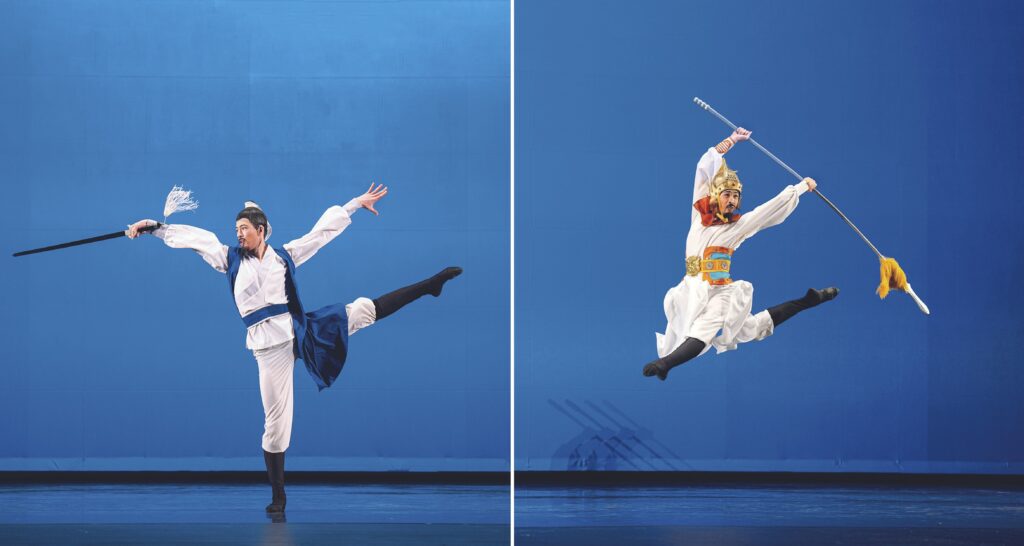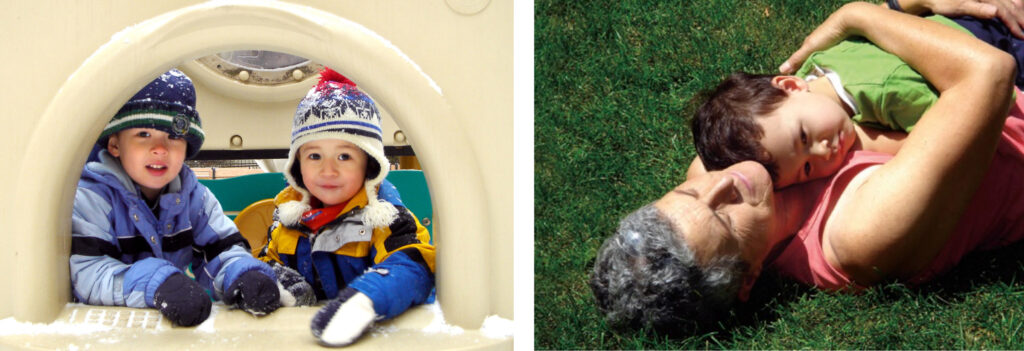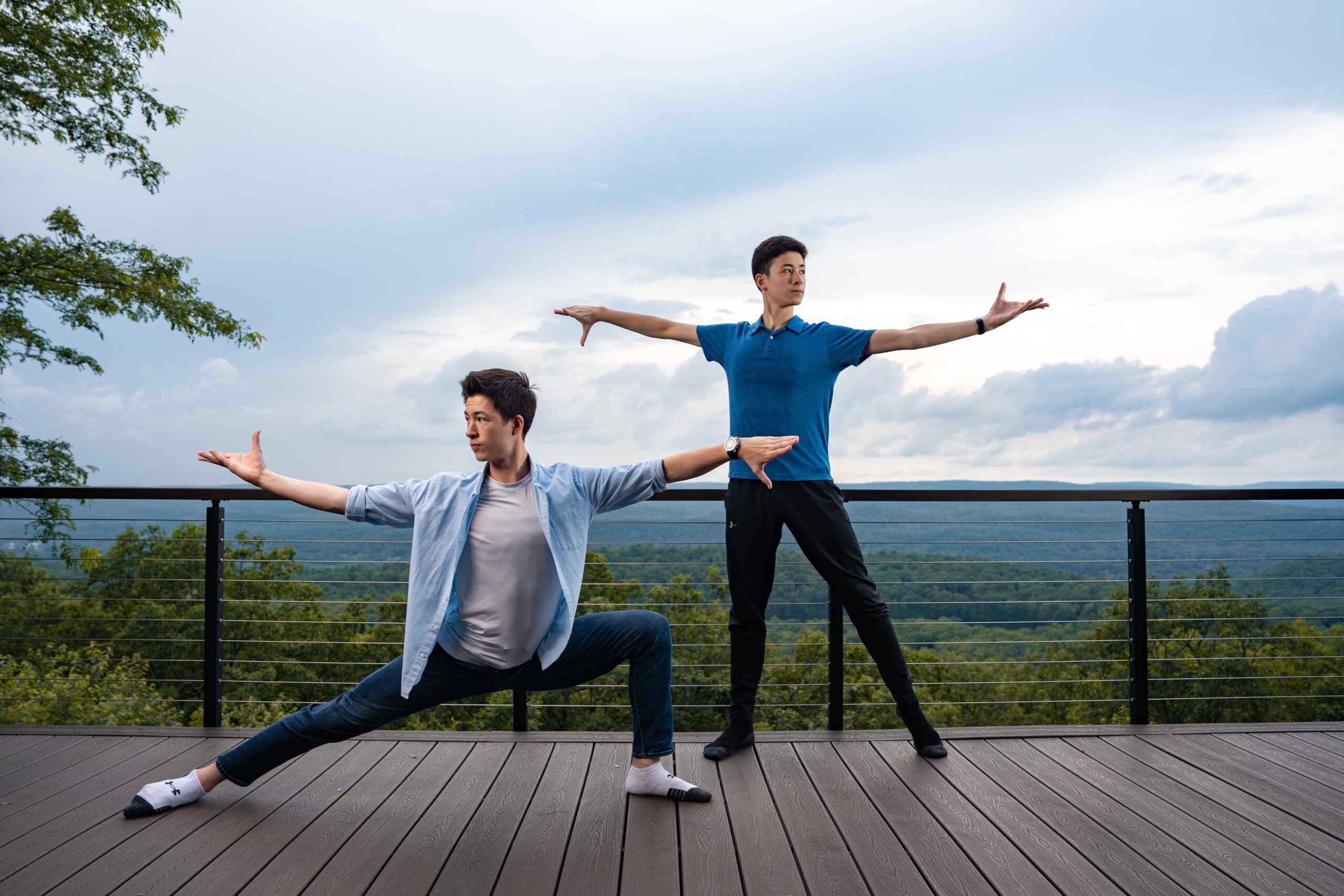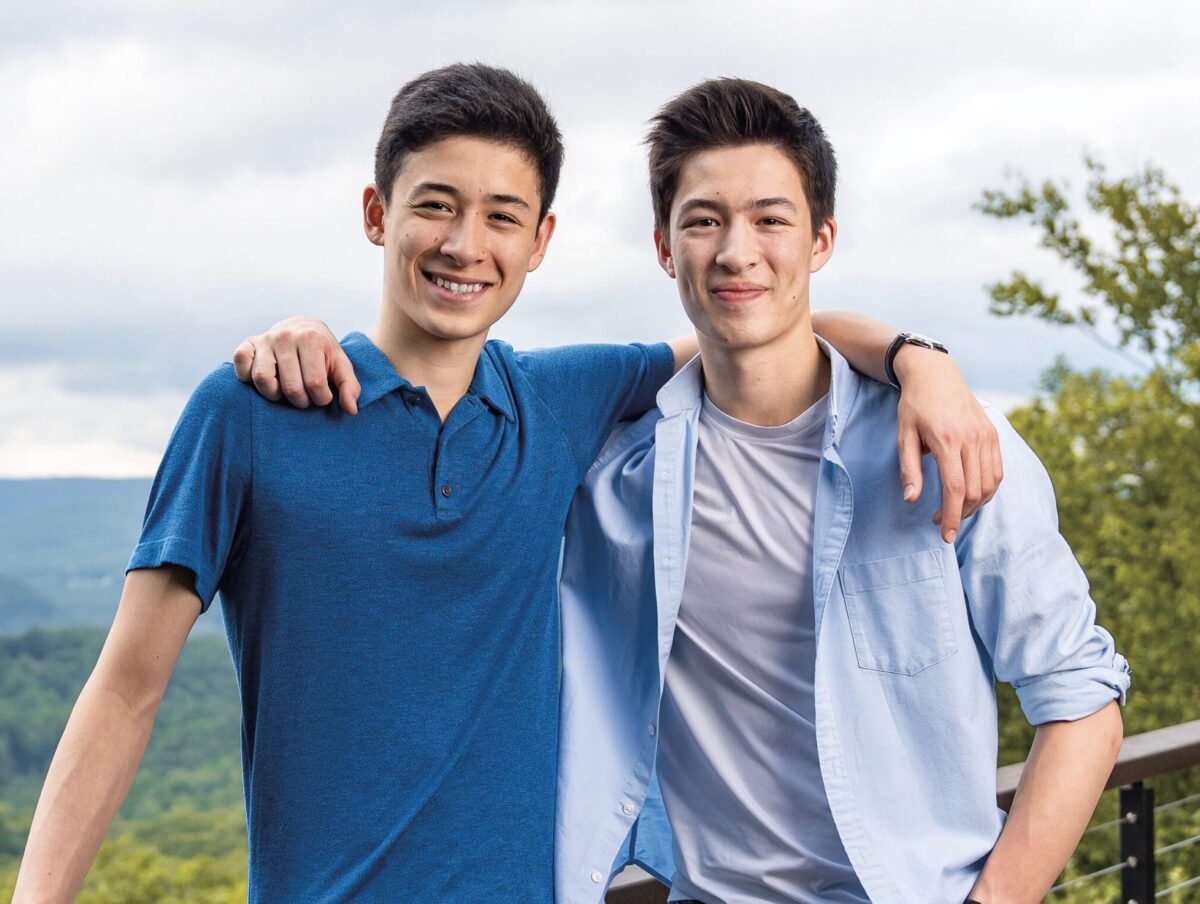The count was full, the bases loaded. Jesse Browde stepped out of the batter’s box, took a deep breath, and fixed his eyes on center field, like a hunter finding his mark. While his teammates were making a ruckus in the dugout, an eerie quiet fell over the parents on the bleachers. They were nervous—but curious.
Who was this kid?
Jesse had just moved to town the previous week, and since he was an unknown player in his first game with his new team, the Little League coach had slated him last in the lineup. No one knew what to expect.
He stepped into the batter’s box, tapped home plate, and settled his weight on his back foot. The opposing team’s pitcher was a big, strong kid. The late afternoon sun bore down on the side of his face, forcing him to squint in a way that made him look even more menacing. The next pitch came in fast, and a little high. Jesse stepped in, and with a quick pivot of his hips, he swung the bat.
Crack!
The moment the ball hit his bat, he knew it: It was a laser to dead center field and cleared the fence by more than 20 feet. His teammates went bonkers, and the hush that had settled over the parents erupted into cheers.
Jesse rounded third base heading for home plate, where the entire team had gathered for the age-old ritual of helmet tapping and bear-hugging reserved only for home runs and walk-offs.
After that day, it didn’t take long for Jesse to settle into his new team.

These were happy times for Jesse and his younger brother, Lucas, who also played baseball. Their new school was great. Their baseball coaches were knowledgeable and dedicated. And despite the frequent protests of their Taiwanese mother, who fervently believed in home-cooked meals, their dad would often take them to Shake Shack or Five Guys after games.
Many burgers and fries were eaten.
At the time, Jesse and his brother felt that they were living the American dream. Later, they would come to realize that was only half true.
“As I grew older and learned more about our country’s founding, I came to realize that the American dream is not only about making a great life for oneself and one’s family,” Jesse said. “It’s about helping to build and create things that can be a force for good in the world and shared with others. It’s about giving back.”
For Jesse and Lucas, it wasn’t until years later when they joined the world’s premier classical Chinese dance company—Shen Yun Performing Arts—that they found their calling.
An Unexpected Path

Their parents, Levi and Vivian Browde, describe their sons’ upbringing as quintessentially American—Little League baseball; Thanksgiving, Christmas, and Fourth of July with family; and discussions about American history around the dinner table. The family pored over biographies of America’s founders, spurred on by the family patriarch—Levi’s father is a professor who specializes in constitutional law.
Dance was never part of the conversation.
That all changed on a trip to New York City, when Jesse and his family saw a performance of Shen Yun Performing Arts at Lincoln Center. Its programs feature classical Chinese dance, a dynamic and expressive art form that’s thousands of years old. What captivated Jesse most, however, was the message of the performance. Drawing upon a wellspring of legends and stories from traditional Chinese culture, Shen Yun performances showcase timeless themes such as loyalty, compassion, resilience, and faith.
“While they take the form of Chinese stories,” Levi said, “these themes are quite universal and not so different from the stories we discuss around the dinner table. The resilience of Washington and his men at Valley Forge, the loyalty of Lafayette, the faith of the pilgrims—these are values that resonate universally.”
For Jesse, the impact was immediate and profound.
“It wasn’t just the choreography or the message that was being conveyed that struck me. It was the passion of the two lead dancers I saw on stage that day,” Jesse said. “I remember very clearly, it was like, ‘That’s what I can do.’”

To the surprise of his parents, Jesse sought out an audition at Fei Tian Academy of the Arts, the preparatory school for Shen Yun’s dancers. He had trained in tumbling and some fundamentals in classical Chinese dance for a few years, but the audition was still a long shot.
“I was conflicted,” Levi said. “I appreciated the kid having a dream, but at the same time, it felt like a quarterback from some backwater Division III school trying out for the New England Patriots. … He had a long way to go.”
Jesse’s mother, Vivian, was more specifically skeptical. She believed her son was too bulky from years of baseball and didn’t seem to have the lithe, flexible physique required for classical Chinese dance, and didn’t mince words in telling him so. “I just said I thought he was too old to start professional dance training—and too chubby,” Vivian said, with a laugh.
His parents weren’t the only skeptics. One of Jesse’s dance instructors initially gave him similar feedback, saying he was likely too old and inflexible to ever become an elite dancer.
But Jesse was determined.
“He had that look in his eye,” Levi recalled, “the same one he used to have in the batter’s box when facing a dominant pitcher. Sometimes he wouldn’t even see the pitcher and just focused on the center field fence—where he wanted to go.”

Right: Lucas took on the role of the famous Chinese general in “Loyalty of Yue Fei” at the same competition. (Larry Dye)
For the next several months, Jesse painstakingly trained his flexibility, constantly pushing his own limits. Sometimes, he recruited his parents to help him stretch or work on strength conditioning.
“Up until that point, I had never really set my heart on anything in my life before. I never had that drive or passion to push my limits for anything before,” Jesse said.
A little more than a year later, Lucas had his own epiphany while watching Shen Yun. For him, however, it wasn’t due to any one particular dance or story, but rather to the effect the artists created.
“There’s an energy to it, and you feel it when watching the show,” Lucas said. “It doesn’t just entertain people or even just teach about culture; it inspires morality in people and connects them with the divine. If people walk out of the theater with a new sense of virtuousness and faith, I feel this is the greatest gift you can give to people, and I wanted to be a part of that.”
Practice, Practice, Practice
For the next several years, Jesse and Lucas were not only brothers; they were classmates, training partners, and confidants.
“Classical Chinese dance is not easy,” Lucas said. “With the rigorous training, you really have to develop camaraderie with your classmates to help each other through, and you also learn the importance of staying positive.”
“On a typical day, we do three hours [of training] in the morning, a full load of academics, and I’m usually with friends in the training room for another three hours at night,” Jesse said. “And that’s only if there are no extra rehearsals. So, a minimum of six hours a day.”

Right: Young Lucas and his grandmother. (Courtesy of Levi Browde)
Despite the rigors of their training, or perhaps because of it, Lucas feels a great satisfaction with his life’s path.
“Sure, at the end of the day, I’m often physically and mentally weary, sometimes literally crawling into bed. But those times are the most fun and give me the best memories and sense of satisfaction,” he said.
And despite the initial skepticism, years of hard work and an affinity for the millennia-old Chinese art form have paid off for both brothers. After winning a gold medal in the junior division of his academy’s dance competition, in 2020, Jesse was invited to join Shen Yun’s annual tour as part of a student practicum. Lucas, who also won gold in the same dance competition, was able to join his brother a year later.
The brothers’ success in such a short time period, however, is not unusual for Shen Yun’s training program. “It normally takes 10 or more years and a grueling schedule for someone to reach a world-class standard, which is why I was initially skeptical about the boys starting when they did,” Vivian said. “But, I have to admit: Shen Yun proved me wrong. They turned my slow, slightly chubby little baseball players into elite dancers. It’s remarkable.”
According to Levi, the success of Shen Yun’s training program is attributable to factors beyond just hard work and dedicated staff. “There’s a special sauce to the Shen Yun recipe that no one else has,” Levi said. “Shen Yun’s artistic director has infused the entire program with a foundation and know-how that had been essentially lost to history.” As an example, Levi points to the twin techniques of “shen dai shou” (the body leads the hands) and “kua dai tui” (the hips lead the legs). Often cited by international dance competition winners as the key ingredient to their success, Levi said these twin techniques have elevated Shen Yun performance art to a whole new level. “No one was even talking about them, let alone able to do them until Shen Yun burst onto the scene,” he added.
“The boys were very fortunate to find an institution that could take their heartfelt aspirations and provide a way to make them reality,” he said. “They are living their dream, and Shen Yun made it possible.”
Today, Jesse and Lucas—now both adults—share the stage together, traveling the world to perform. Yet, as audiences across the globe marvel at the Chinese art form that they exhibit, few may realize that it’s an American enterprise.
An American Company Showcasing Authentic Chinese Culture
Shen Yun Performing Arts was established in New York in 2006 with a mission to revive China’s 5,000 years of traditional culture.
Within a few years, Shen Yun’s shows were routinely sold out wherever they went. Today, the group has eight companies that tour the world simultaneously, performing in more than 200 cities across five continents each season. With groundbreaking innovations in digital stagecraft, the world’s first orchestra to feature both classical Chinese and Western instruments as permanent members, and storylines that draw from the rich tapestry of China’s 5,000-year history, the company quickly raised the bar on what a group of artists could accomplish.
The response from audiences around the world was immediate, and heartwarming.
Lucas says one of the most inspiring things for him is watching the short interviews that people give after watching a Shen Yun performance.
“Although it’s just a performance, you can tell by watching audience reviews that something very different and special happens at a Shen Yun show. It touches people,” he said.
After seeing Shen Yun this past year, world-renowned author and life coach Tony Robbins said: “The stories are amazing, the execution and the dance is amazing. … I think this is beautiful because it’s keeping [Chinese culture] alive, and it’s sharing it with the world.”

Actor and comedian Tim Allen, who also saw Shen Yun recently, concurred, saying, “I loved it … quite wonderful.”
For U.S. Brig. Gen. Hector Lopez, a former wartime chief of staff, seeing Shen Yun was transformative: “It was a very emotional experience. … It was not just entertaining, but at the same time, it has a message. I believe we become better people just by watching and witnessing this.”
But none of this could be done in China today. For decades, the Chinese Communist Party (CCP) has sought to eradicate traditions and impose communist ideology on the people. Because Shen Yun showcases authentic Chinese culture from before the rise of communism, and the CCP views that mission as a threat, the dance company cannot be based in China, nor travel there to perform. For more than a decade, the CCP has pressured theaters and local governments around the world to cancel Shen Yun’s shows.
With no safe haven to nurture authentic Chinese culture at home, elite classical Chinese dancers and musicians have turned their sights on America’s shores to establish Shen Yun.
“At first glance, it may seem strange to have a company here in America whose artistry and cultural foundations are more authentically Chinese than anything you can find in China today,” said Shujia Gong, an associate professor at Fei Tian College. “However, America has long been the place where great ideas grow into great enterprises.
“From the Magna Carta to Locke and Montesquieu, those great ideas unfolded in Europe long before the American Revolution, and yet it was in America where these ideas coalesced into a system of government that inspired freedom and democracy around the world. The Industrial Revolution started in England, and yet it was in America where the automobile, manned flight, as well as computers and the Internet really took off.
“America was the ‘Great Experiment’ in self-governance, but it has also become the great incubator for industry, culture, and progress in general. So it’s not at all surprising that the world’s premier classical Chinese dance company is an American company.”
That idea isn’t lost on Jesse and Lucas. In fact, it’s a point of pride.
“It’s people from all around the world, America, Korea, Japan, Europe—we are from all over the place,” Lucas said. “People come to America to expand what it is they want to do, to make dreams happen.”
“These artists at Shen Yun are people who want to showcase the truth [of real Chinese culture], and they are from all around the world,” Jesse added.

A Foundation of Freedom, a Global Reach
With Shen Yun, Jesse and Lucas have traveled around the world, as the company routinely takes to the stage on five continents. This past season, their group ventured into new markets, performing 63 shows in eight European countries, as Shen Yun has become a phenomenon across the Atlantic in recent years.
While the experience has exposed the brothers to a broader range of peoples and cultures, it has also given them a newfound appreciation for America.
Recently, on a rare day off, Jesse and Lucas sat in their living room and reflected on this idea.
“Being American is about contributing to our country in a way that allows many different opinions and perspectives to flourish,” Jesse said. “I draw strength and inspiration from knowing that I come from a country whose principles dictate that everyone should be treated as human beings blessed with the right to life, liberty and the pursuit of happiness, no matter who they are.”
“For me,” Lucas added, “it’s about embracing the liberty we have here that allows us to not only pursue our own happiness, but also have the freedom to share culture and ideas with others. In a way, it’s about having the strength to spread my wings beyond America’s borders. I feel confident and fulfilled traveling the world, partially because I know my home is in America—and that gives me a sense of a foundation to do so much.”
From Nov. Issue, Volume 3




